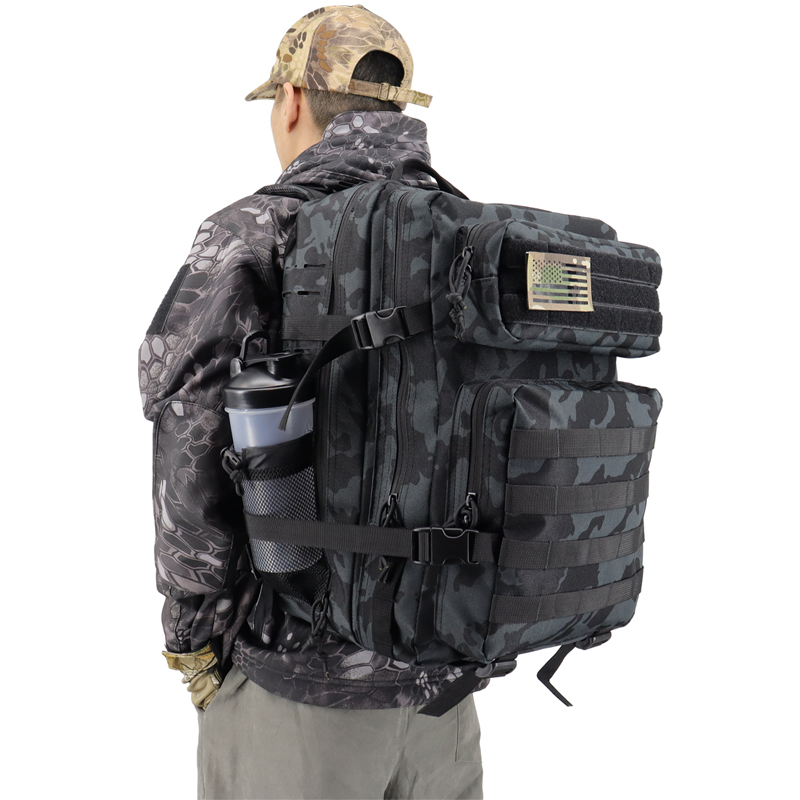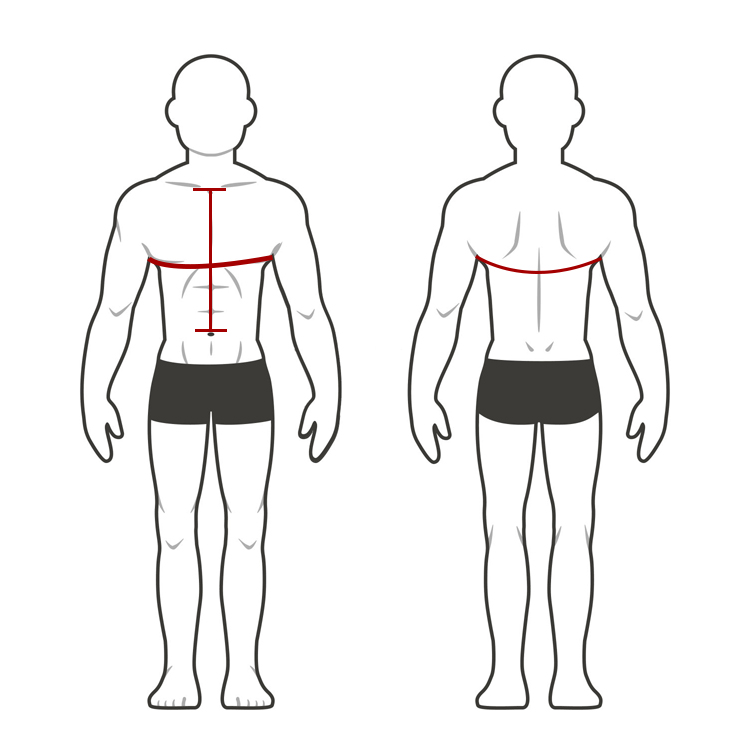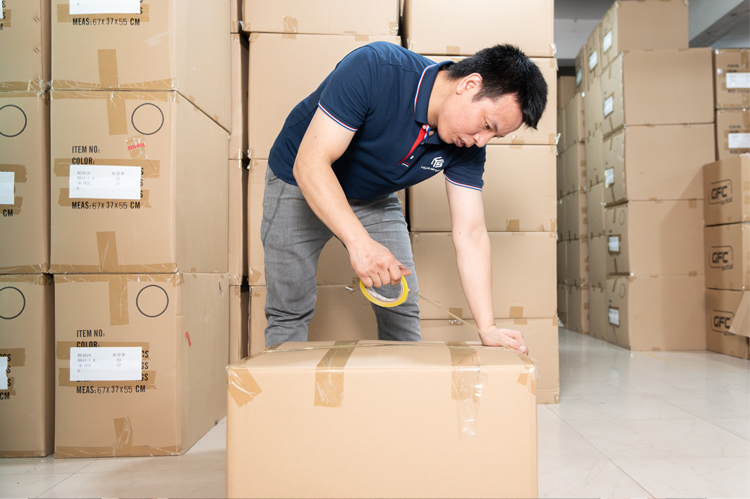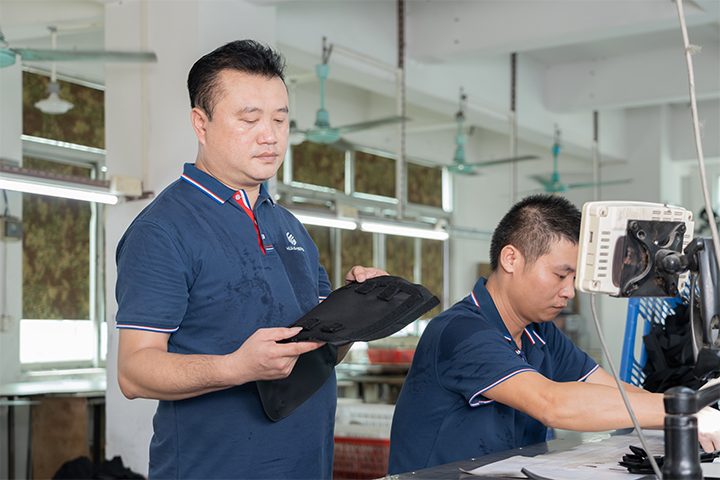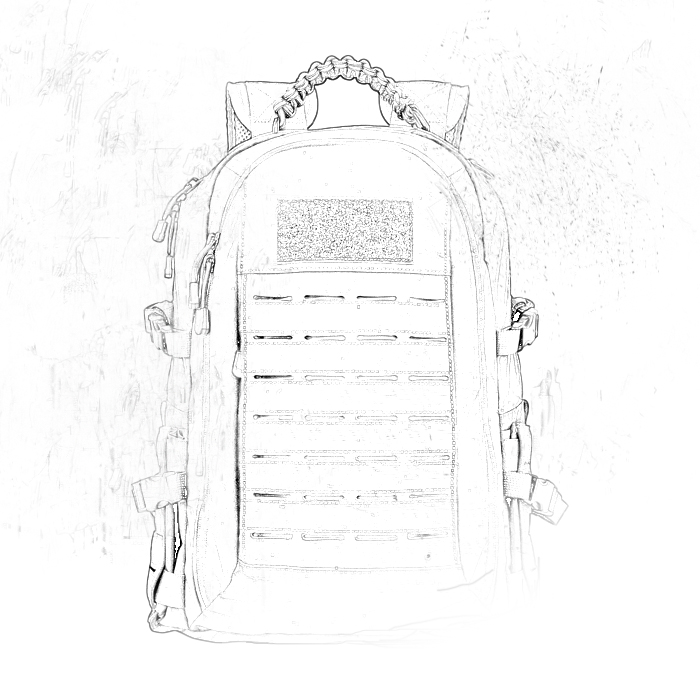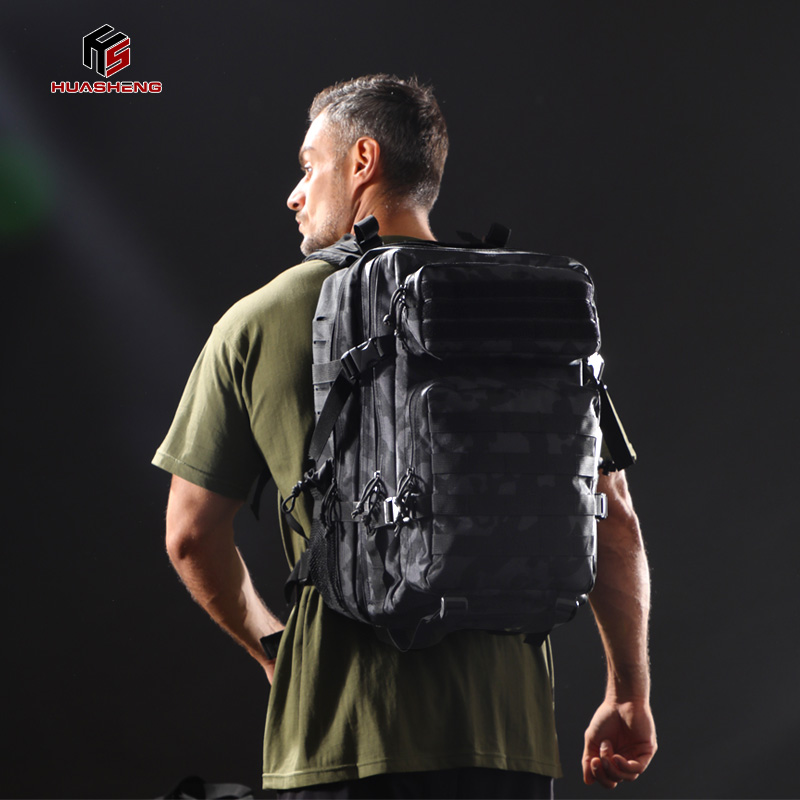After determining the custom tactical backpack design you want, the next step is to find a reliable supplier. Choosing the right partner will directly affect the quality, production speed, and final effect of your backpack. That’s where a Tactical Backpack Supplier Evaluation becomes essential – helping you assess potential suppliers based on key factors like reliability, production capabilities, and past performance.
1. Evaluate supplier capabilities
First, you need to confirm whether the supplier has the ability to meet your needs. Here are some key points to pay attention to:
Production capacity: The supplier needs to have enough capacity to complete your custom order on time. You can ask about their production capacity, such as a qualified supplier can produce 5,000 to 10,000 tactical backpacks per month. This production can ensure timely delivery during peak periods and avoid affecting your sales plan due to untimely supply.
Communication skills: Good suppliers should be able to answer your questions in a timely manner and understand their project management process. The smoothness of communication will directly affect the progress and results of the project. Generally speaking, good suppliers should be able to achieve more than 75% timely feedback in communication, ensuring that any problems can be solved quickly and avoid delays.
2. Check previous cases and customer feedback
When evaluating suppliers, it is very important to look at their previous projects and customer feedback. This will help you better understand the strength and credibility of the supplier.
Project Cases: Ask suppliers to provide previous customized backpack cases, focusing on their design, materials, and overall effects. You can ask their customers to understand the cooperation experience. For example, if a supplier has completed more than 50 successful customized projects in the past year and has a customer satisfaction rate of more than 90%, they are usually trustworthy.
Customer Feedback: Check other customers’ comments on the supplier, including satisfaction, delivery time, and service quality. Online review platforms and social media are good places to learn about customer feedback. Generally speaking, suppliers with a customer satisfaction rate of more than 80% are more reliable, which can provide you with a certain sense of security.
3. Sample Testing and Quality Confirmation
After selecting a supplier, it is very necessary to ask them to provide samples for testing and evaluation. This will give you an intuitive understanding of the quality and design of the product.
Sample Evaluation: Test the material, stitching process, and functional design of the sample to ensure that the sample meets your expectations and can cope with the challenges in actual use. For example, for a 20-liter tactical backpack, the wear resistance of the material should reach 1000D nylon, and the tear strength should not be less than 400N to ensure that it will not be damaged under high-intensity use.
Field testing: If conditions permit, you can take the sample to the outdoor for actual testing to see how it performs in different scenarios. Take a 3-day hike to observe the comfort, durability and practicality of the backpack. It is also necessary to test the waterproof performance and wind resistance of the material under different weather conditions.
4. Price and cost analysis
Price and cost are also key factors in the process of selecting suppliers. Here are some considerations:
Price transparency: When quoting, suppliers should provide clear price details, including material costs, production costs, transportation costs, etc. For example, the price of a customized 20-liter tactical backpack may range from 20 to 50 US dollars, depending on the material and design complexity. Make sure you understand the composition of each cost so that you can make a reasonable budget.
Cost-benefit analysis: Considering the long-term use and brand value of custom backpacks, choosing a supplier with moderate cost is not necessarily the cheapest, but the one that provides the best quality products and services. For example, if you choose a supplier with a higher quotation but guaranteed quality, you may get better after-sales maintenance and customer satisfaction.
Order quantity and price relationship: Ask the supplier about the relationship between order quantity and price. Large-volume production often results in lower unit prices. For example, purchasing 1,000 backpacks may be 20% lower than purchasing 100. Make sure to specify the order quantity in the contract to facilitate budget control.
5. Sign the contract and clarify the terms
After determining the right supplier, signing the contract is an important step to ensure that the cooperation goes smoothly. The contract should include the following:
Production schedule: Specify specific production and delivery times to ensure that you can get the product on time. Usually the production cycle of a custom tactical backpack is between 30 and 75 days. Make sure both parties agree on the schedule to avoid subsequent disputes.
Quality standards: Specify the quality standards of the product and ensure that the supplier follows these standards when producing. It is recommended to require the supplier to have ISO 9001 quality management system certification in the contract as a quality assurance.
After-sales service: Specify after-sales service terms to ensure that problems can be solved in a timely manner.、
In the process of selecting suppliers and evaluating partners, there are also several discussion points to consider:
Supplier flexibility: How flexible is the supplier on design changes or emergency orders? If the design needs to be adjusted, can the supplier respond quickly?
Innovation ability: Can the supplier provide innovative solutions and suggestions to help you improve the market competitiveness of your products? This is crucial to the brand image.
Environmental responsibility: Does the supplier pay attention to environmental protection and use sustainable materials and processes during the production process? This is an important consideration for the growing number of environmentally conscious consumers.
Long-term partnership: Do you want to establish a long-term partnership with the supplier, or a one-time transaction? Long-term cooperation may bring better prices and services, but it also requires building trust between both parties.
Cultural fit: Does the supplier’s company culture and values match your own brand? This may affect the efficiency and effectiveness of the cooperation between the two parties.
Conclusion
Choosing the right supplier is key to ensuring the success of your custom tactical backpack. By conducting a thorough Tactical Backpack Supplier Evaluation—assessing the supplier’s capabilities, reviewing previous cases and customer feedback, testing samples, and analyzing prices and costs—you can identify the most suitable partner. Make sure each step is carefully considered to bring your design ideas to life in the final product, achieving the desired results. product and achieve the desired effect.

